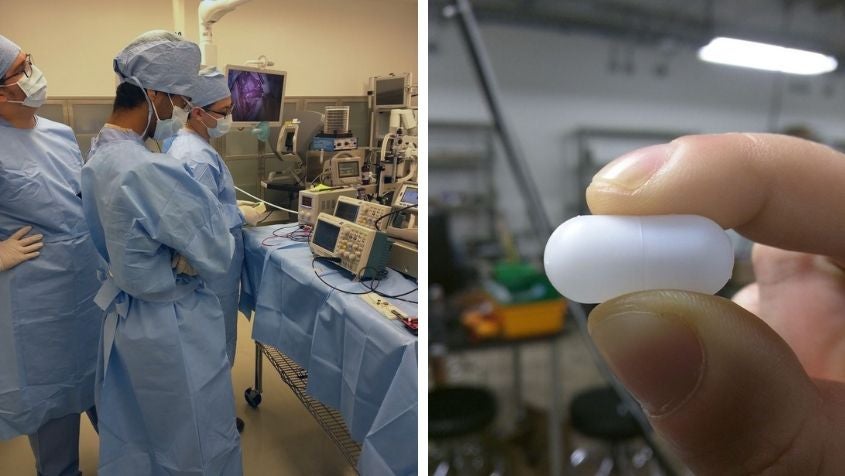After abdominal surgery, patients worldwide are at risk for developing postoperative ileus, a condition that causes the gastrointestinal tract to cease independent metabolic motion. The result is patient discomfort and a prolonged postoperative hospital stay.
In the last year, Rice senior design team StimPill developed an ingestible device that relieves postoperative ileus symptoms and restores patients' gastrointestinal motion.
The minimally-invasive device created by bioengineering seniors Isaac Chang, Jeremiah Hess, David Qin, Nishant Verma and Tony Wang combined mechanical and electrical designs to create a fully wireless pill. The pill successfully delivers electrical stimulation in the intestines and generates localized contractions. The team conducted an acute porcine model study and several ex vivo studies to develop and validate their design.

This summer, the team took their device on the road and competed in two national competitions. Stim Pill won third place at the American Society for Artificial Internal Organs’ 7th Annual Student Design Competition at its annual conference June 26-29 in San Francisco.
This month, the team learned that StimPill had won an honorable mention in the NIH National Institute of Biomedical Imaging and Bioengineering 2019 DEBUT Challenge.
“[Rice bioengineering provided] great opportunities to practice presenting wild and self-generated concepts and ideas over the course of our major classes. And a sense of belief in us from our senior design mentors,” said Verma, who recently began an M.S./Ph.D. program at the University of Wisconsin in Madison, under the guidance of Kip Ludwig, associate professor of biomedical engineering.
The project was sponsored by Allotrope Medical, a Houston-based Y-Combinator and venture-backed medical device company. The company is currently conducting a clinical pilot for their primary device, which StimPill would complement. Sabia Abidi, a lecturer in bioengineering at Rice, acted as faculty advisor.

